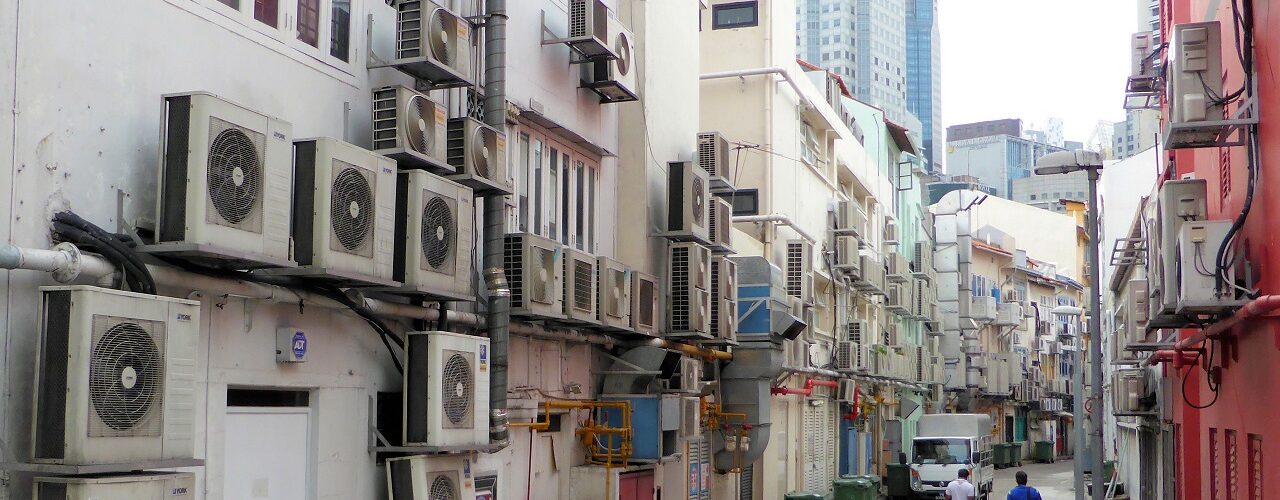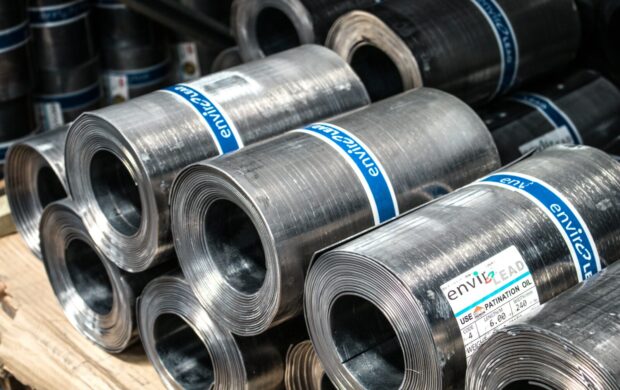Researchers at the National University of Singapore have developed a prototype air-conditioning system that relies on water rather than chemical refrigerants. The prototype is 40% more energy efficient than standard systems and can cool a space to as low as 18°C.

As part of their creation the team developed two new technologies. The first is a membrane dehumidifier which uses special water-absorbing materials and a difference in air pressure to extract water from ambient air as it is passed through the membrane. The removed water is even potable. The drier air is then passed through a counter-flow dew-point evaporative cooler, the team’s second invention. This device removes heat through evaporative cooling, the same process that reduces body temperature through perspiration.
The 1.6 meter prototype is the product of four years of government-funded research. Researchers hope to have a commercial version on sale in the next three to five years.











